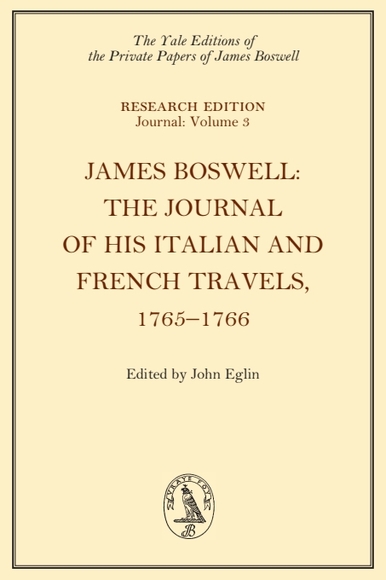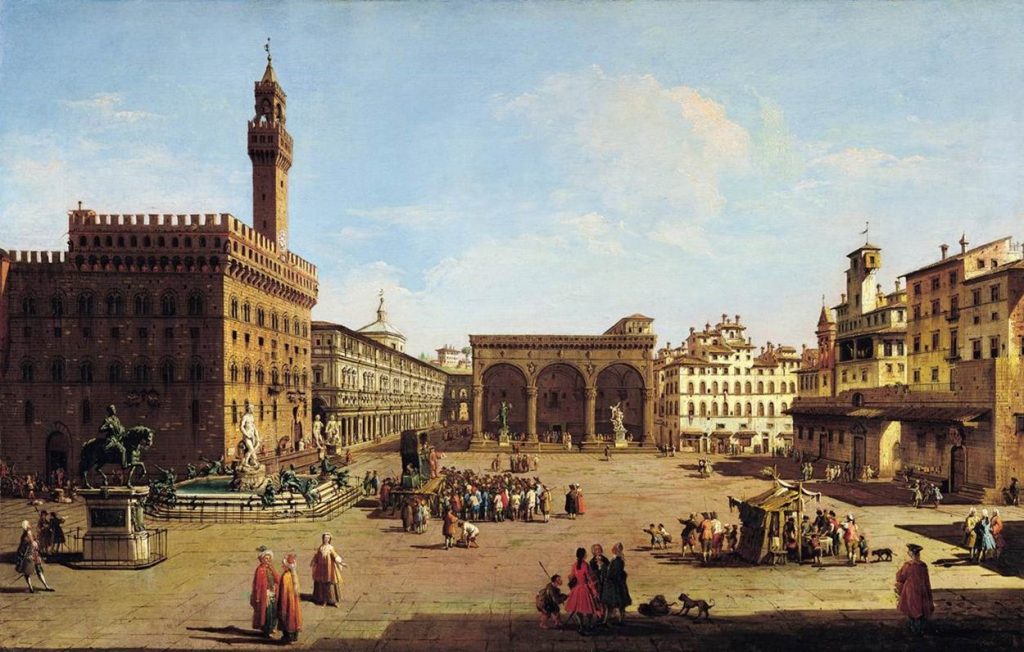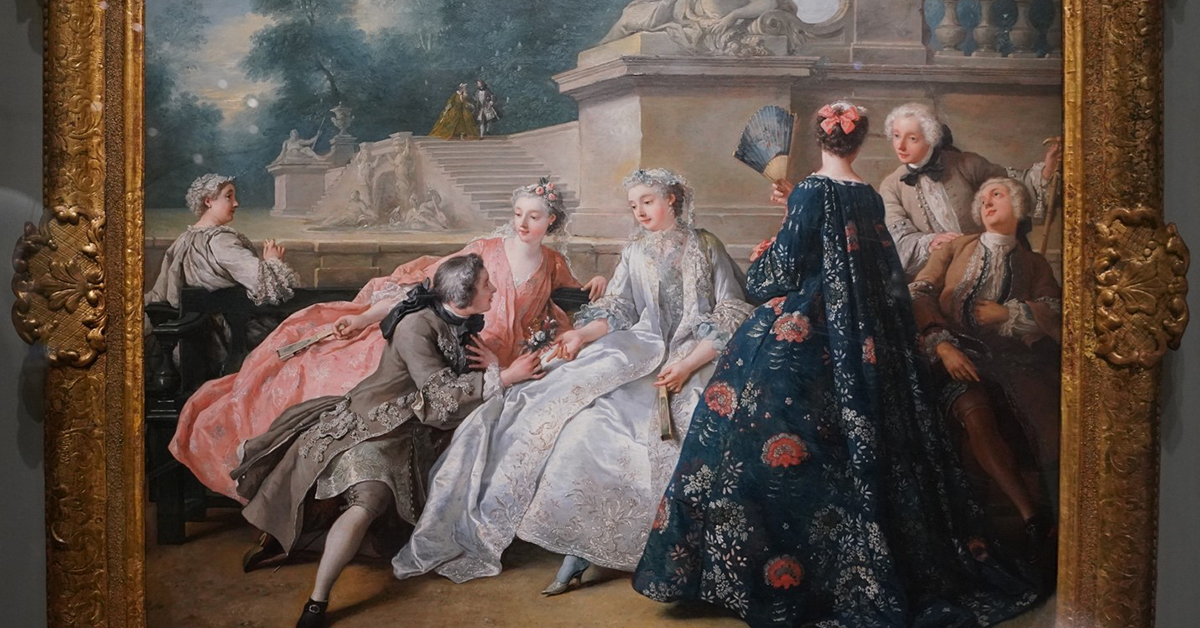
by John Eglin

James Boswell, The Journal of his Italian and French Travels, 1765–1766 is the first complete and unexpurgated edition of James Boswell’s account of his sojourn in Italy and France, accompanied with extensive annotations and appendices, including items not previously published.
James Boswell, like a number of wealthy and well-connected British travelers in Italy, could expect to move in elevated social circles as he went from city to city. In common with many of his fellow tourists, he noticed that married women of the Italian elite appeared in public with male escorts who were not their husbands. These escorts were known as cicisbei, literally ‘whisperers.’ Foreign observers, and not just the British, were prone to misunderstand what looked to them like an ‘adultery-adjacent’ practice. Boswell, at least initially, was no exception. ‘Italy has been called the garden of Europe,’ he remarked; ‘I think it is the Covent Garden,’ making a comparison to Georgian London’s ‘red light’ district.[1]

For Italian aristocrats, the practice of cicisbeismo solved two problems. Out of a concern to preserve familial wealth, Italian noblemen married late if they married at all; out of concern to have heirs to keep wealth in the family, their brides were much younger, sometimes by twenty years or more. The result was a surplus of unattached young men. As the eighteenth century progressed, the rays of ‘enlightenment’ penetrated Italian cities as elsewhere in eighteenth century Europe, and the culture of illuminismo afforded unprecedented social opportunities to women of the Italian elite. As liberated as they were under new ‘enlightened’ sensibilities, however, noblewomen nevertheless could not appear in public unescorted. For any number of reasons, they were not attended by their husbands. Ostensibly, as members of politically empowered elites, noblemen were too preoccupied with official business to appear at sociable functions, but another factor was that so many of them were so much older than their spouses.
For young men of the Italian aristocracy, service as a cicisbeo or cavaliere servente was an important means of making and building the networks of relationships that were essential to maintaining and advancing their social position. ‘The first thought a young man has after returning from boarding school,’ wrote one contemporary observer, ‘is immediately to find a lady to escort.’ They might even be paid, such as the young man offered a salary, board, and lodging to attend the spouse of an ambassador in Venice, to ‘keep [her] company wherever she wished, go walking with her, when she paid visits and at all times, and to be considered more of a confidant than a person in service.’
Far from enabling marital infidelity on the part of the women they attended, the cicisbeo protected his mistress from unwanted attention. Charles de Brosses wrote in 1739 that cicisbei were deployed ‘to bar the way to a poor third party who would like to try his luck.’[2] The travel writer Jérôme Lalande insisted that
the cicisbeo is never a lover . . . . [H]e is more often a man for whom [a lady] has little taste and who accompanies her for decency’s sake; he sees his lady more often in public and in company than alone together; and if the husband takes any interest, the cavaliere servente will not be more free with his lady than an Englishman would with a friend’s wife.
Lalande taxed the English in particular with misconstruing this social custom.[3] Boswell had finally absorbed this lesson by the time he wrote Rousseau from Lucca:
Italian jealousy survives feebly in the hearts of cavalieri serventi of whom every lady has one or two. A cavaliere servente is a being whom I regard as illustrating the last stage of human degradation. A lover without love, a soldier without pay, a being who is more a drudge than is a valet de chambre, who does continual duty, and enjoys only appearances![4]
An Italian lady of quality might be attended by several such young men, as was the Sienese noblewoman Girolama Piccolomini, who described ‘young men who pay me attention’, in consequence of which ‘everyone believes that there is an intrigue among us’.[5] Boswell had served his turn as one of these ‘consiglieri,’ one of the formative episodes of his Grand Tour.
[1] Boswelliana: The Commonplace Book of James Boswell,ed. Charles Rogers, 1874, p. 239.
[2] All quoted in Roberto Bizzocchi, A Lady’s Man: The Cicisbei, Private Morals and National Identity in Italy, tr. Noor Giovanni Mazhar, 2014, pp. 32-3, 65.
[3] Joseph Jérôme Lefrançois de Lalande, Voyage d’un François en Italie, 1769, v. 142 (viii. 176-77).
[4] From Boswell to Rousseau, 3 Oct. 1765, Yale University, Beinecke Library, Gen MSS 89, L 1116–17.
[5] From Girolama Piccolomini to Boswell, 3 Oct. 1765, Yale University, Beinecke Library, Gen MSS 89, C 2252.
About the author

John Eglin, Professor of History at the University of Montana, is the editor of James Boswell: The Journal of his Italian and French Travels, 1765-1766, now available from EUP. He is author of The Gambling Century (2023), The Imaginary Autocrat (2005), and Venice Transfigured (2001).





